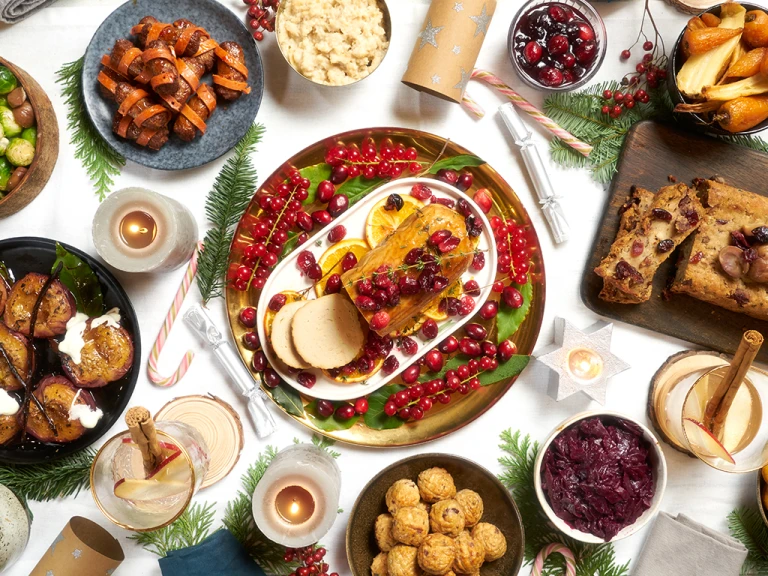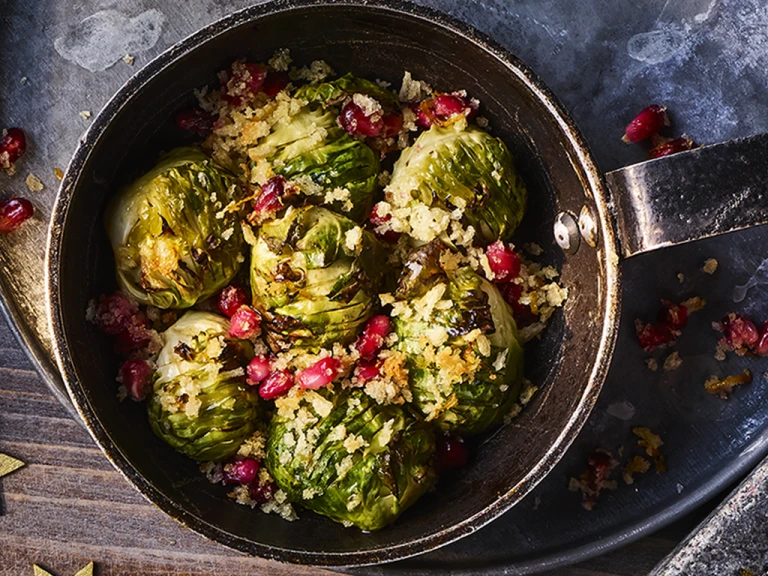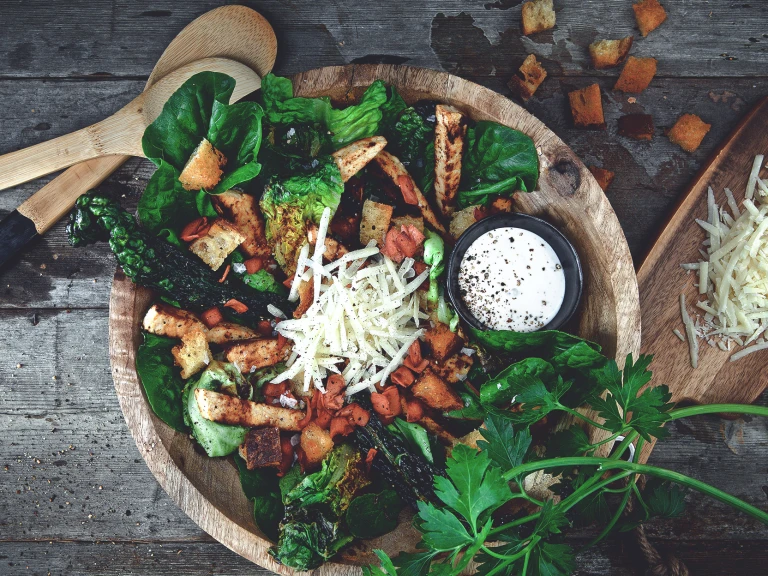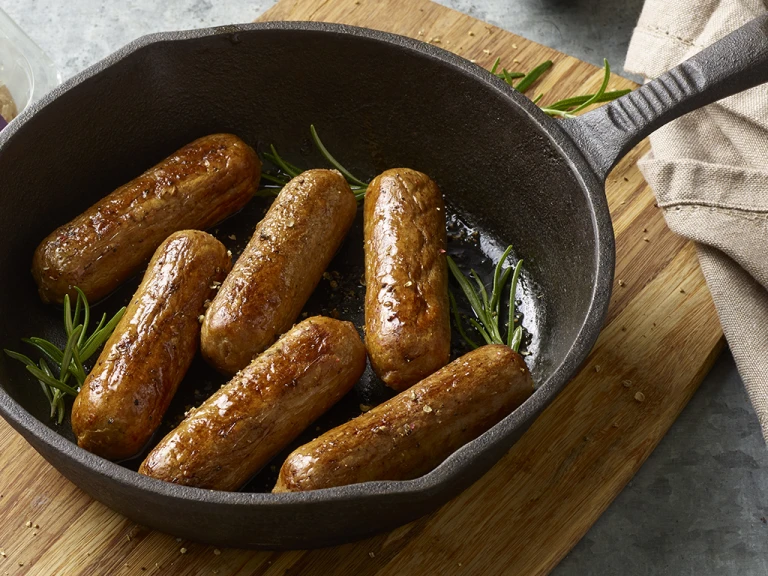
10 Tips for a More Sustainable Christmas

As we count down to the big day your thoughts may turn to presents, festive feasting, decorations and last-minute shopping. But how much thought goes into our environment?
Though it may be the most wonderful time of the year it’s certainly not the most sustainable. Over the Christmas period waste and carbon emissions soar and it’s no surprise to see why.
The Carbon Footprint of Christmas
With the average UK and Ireland consumer estimated to fork out £548 each this Christmas, a lot of cash is spent on food, shopping, travel, and presents. All of which generate waste and carbon emissions. A study by the Stockholm Environment Institute found that the three days of Christmas festivities could produce 650kg of CO2e emissions per person - almost half of which was from Christmas shopping alone.
Around 125,000 tonnes of plastic packaging are thrown away over Christmas - that's the equivalent weight of more than 50,000 polar bears! And it's not just rubbish either, with over 4 million Christmas dinners estimated to go wasted in the UK and Ireland every year. When it comes to Christmas, our carbon footprint may not be on the nice list, but what can we do?
Is it possible to have a sustainable Christmas?
Christmas is a time for giving and spending time with those close to you. There are many ways to cut down on your waste without ruining the festivities - here's 10 easy tricks and tips on how to celebrate Christmas more sustainably.
1. Don't be crackers

A Christmas tradition that can easily turn into a Christmas waste. Crackers come with excess packaging that can’t always be recycled and we all know you don’t actually use the gifts that come from them! Why not consider reuseable crackers this year, which can be refilled and enjoyed year on year. Or you can also try make your own using everyday items. Try this nifty DIY by House Beautiful using leftover cardboard tubes, here which you can be sure to fill with more meaningful gifts than a plastic paperclip set!
2. Napkin Cole

We’re not suggesting you brave your stuffing and gravy without napkins but skipping on disposable paper napkins is an easy way to have a more sustainable Christmas. Simply swap for washable fabric napkins which can be washed and reused again and again. They will also look a lot nicer on your dinner table and are just as effective!
3. Wrap Battle

It’s estimated that 50,000 trees are cut down every year to make wrapping paper and bags. Time to make a swap. You can simply reuse wrapping paper and giftbags you receive around Christmas by taking extra care when unwrapping. Or opt for a reusable fabric wrap, like the ones from Wrag Wrap here. Not only can these be used to beautifully wrap presents but they also become part of the gift which loved ones can reuse and gift on.
4. Shop Local

Due to high demand at Christmas, big brands are under pressure to ship products to consumers quickly. This often results in fewer items being bundled together for delivery, increasing the carbon footprint of goods when you order online. Avoid the naughty list (we’re looking at you Bezos) by supporting local businesses in your area this festive period. This isn’t only a great way to support your local community and cut down on your carbon footprint but often leads to finding unique and quality gifts. But don’t just stop at presents - use local markets and green grocers for all your Christmas dinner needs.
5. Planes, trains and automobiles

Driving home for Christmas? Time to think again. UK families will drive a whopping 302 miles during the Christmas period, from trips to shops, supermarkets and festive events. Cut down on emissions by taking public transport or keeping your shopping trips down to a minimum – another great reason to shop local!
6. Made with love

Instead of shopping or ordering online show your loved ones how much you care with homemade presents. There are many great and meaningful gifts you can make for friends and families such as homemade Christmas cards, scented candles and their favourite cookies! These can be personalised and unique to them so DIY something new this year and cut down on emissions and waste spent shopping.
7. Get lit

Christmas lighting displays can add 500kg CO2e per household. Which, according the Energy Saving Trust, this produces enough carbon dioxide to fill 15,500 hot air balloons! By using low energy LED lighting you can cut down on energy use and costs, or make use of the winter sun by using solar panelled lights.
8. Waste not, want not

Around seven million tons of food is binned over the Christmas period in the UK. Cut down on food waste by making only what you need or get creative with leftovers for the remainder of December, bubble and squeak anyone? And if you just can’t handle another turkey sandwich then it’s perfectly safe to freeze your Christmas leftovers. You can freeze Quorn once it has been cooked for up to a month so you can enjoy a leftover Christmas dinner in January!
9. Birch, please.

The great real vs fake Christmas tree debate can be settled with sustainability. According to the Carbon Trust, a 2-metre artificial tree has a carbon footprint of around 40kg – more than 10 times that of a real tree. So unless you plan on utilising your faux fir for the next decade of Christmases, we would suggest thinking twice about purchasing a pink plastic tree to match your sofa! Once Christmas is over you can burn, compost or replant your old tree, unlike artificial ones which are mostly made of a mix of metal and plastic which cannot be recycled.
10. Meat the Future

Cutting down your meat intake over Christmas is a great way to enjoy the festivities more sustainably. If 85% of the UK’s population replaced a meat Christmas dinner to plant-based 131 million kg CO2e would be saved. That’s the equivalent to 438 million miles in a petrol car! Switch up your festive traditions this Christmas by reducing the meat at your table with our Quorn Roast, or simply pass on the pigs in blankets.
Looking for some inspiration? Throw a truly festive feast with our collection of Christmas recipes, here. For everything you need to make a meat-free Christmas dinner your new tradition!
Recent news
All news

What's new
Quorn Net Positive Report 2024 – Out Now

What's new
What is a Flexitarian diet?


What's new
Eating Seasonally

What's new